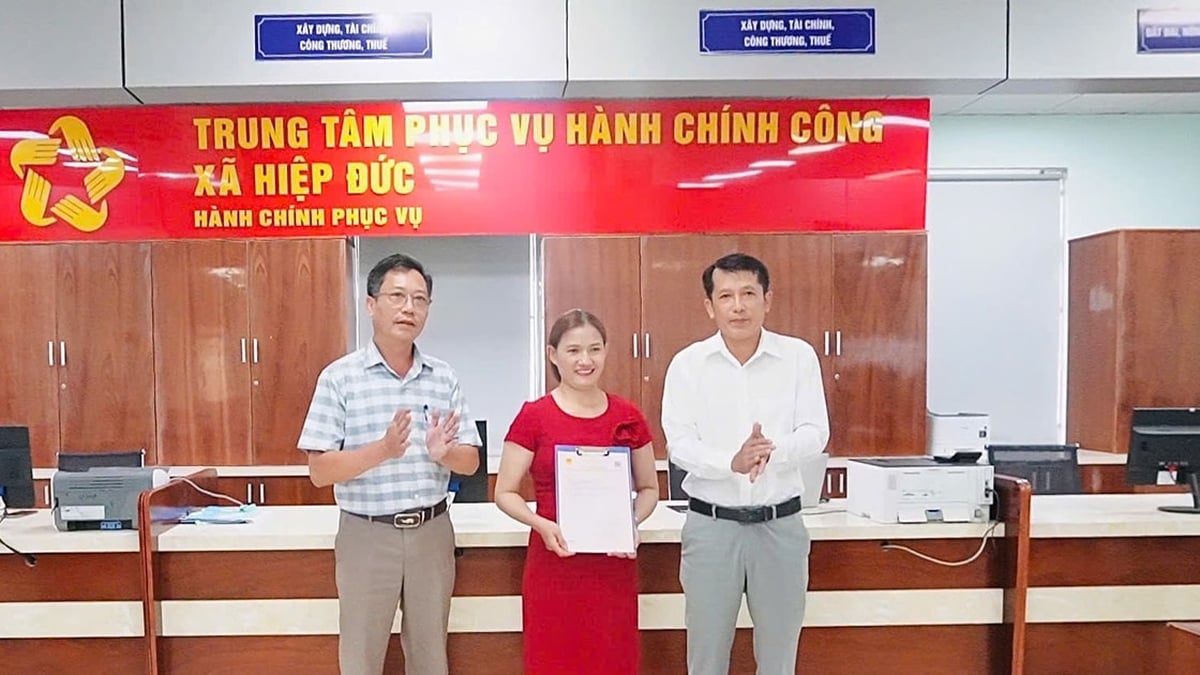Mr. Nguyen Van Toai, Director of VPS Securities Company, analyzed: Personal Income Tax Law 4/2007, effective from January 1, 2009, stipulates 2 methods of tax collection for securities transfers.
Specifically, in the case of applying tax on income with an annual tax period, each time an individual transfers, he/she temporarily pays personal income tax of 0.1% on the selling price each time and does not have to make a tax finalization at the end of the tax year.
In case an individual applies the tax collection method at a tax rate of 20%, with an annual tax calculation period, each time the individual transfers, he/she temporarily pays tax of 0.1% on the selling price each time, and at the end of the year, the tax amount temporarily paid is deducted.
Then, the tax law that took effect in early 2015 provided a unified method for calculating personal income tax on securities transfers at a tax rate of 0.1% on the transfer price each time.
"So in fact, the regulation of collecting 20% tax on annual securities interest has been implemented, now it is just a re-proposal, unifying a tax collection method for securities transactions. Therefore, I think this policy is normal, the 20% tax rate is also reasonable.
This policy even helps investors benefit more when settling at the end of the year. Because if the fee is calculated directly for each transaction, investors will lose money, but if they choose to settle at the end of the year, if the investor does not make a profit, they will not have to pay any fee. In fact, calculated for the whole year, the rate of investors losing is very high," said Mr. Toai.
Mr. Toai also said that collecting taxes based on annual profits will benefit "surfing" investors. Because according to the old policy, tax was collected at 0.1% for each transaction, these investors often traded many times a year and lost a lot of money. Meanwhile, with the new policy, no matter how many transactions a year, they will only be charged once, which is more beneficial.
In contrast, for the "sharks", who only have a few large transactions throughout the year and previously lost less money, now have to calculate the profit at 20% and may incur additional costs. However, this makes it more difficult for them to manipulate the market.
Sharing the same view, Mr. Nguyen Quang Huy - CEO of the Faculty of Finance and Banking at Nguyen Trai University - said that the Ministry of Finance's proposal to switch to a model of taxing personal income based on actual annual profits from securities transactions with a tax rate of 20% is theoretically a fairer form, because only when investors have actual income do they have to pay tax .
However, he emphasized that from a practical perspective, without a carefully prepared roadmap, the transition to this model could create some undesirable consequences.

The Ministry of Finance proposed to unify the collection of 20% tax on annual securities interest. (Illustration photo)
Specifically, tax collection on securities interest can reduce market liquidity, due to cautious sentiment and defensive reactions from investors.
This policy could also have a ripple effect on stock valuations, as rising investment costs alter risk appetite and holding strategies.
In terms of governance structure, taxing on net profits requires extremely strong data management capacity. " Vietnam is still in the process of building an integrated data platform between tax authorities - trading systems - securities companies. Therefore, it is necessary to apply a roadmap to avoid causing operational overload and the risk of incorrect tax calculation, seriously affecting market confidence," Mr. Huy stated his opinion.
Economist Nguyen Tri Hieu also said that taxing profits from transactions could slow down liquidity and reduce the attractiveness of the stock market. However, in the long run, the market will stabilize and this is not a factor that will harm the stock market.
Mr. Hieu emphasized that the policy of collecting tax on securities transfer profits is necessary. Because all assets when transferred together and generating profits become income and must pay tax.
“ Therefore, when securities transfer activities generate interest, that interest must be taxed. And the tax rate of 20% is reasonable. Currently, investors are having to pay tax directly on the transactions that arise. But in reality, this transaction amount is the amount that has been taxed, if we continue to collect tax on each transfer, there will be anti-taxation. Therefore, now only taxing on the interest that arises will be fairer,” said Mr. Hieu.
Need fair and transparent control methods
Mr. Hieu also emphasized that to implement the new policy fairly and effectively, input costs and selling prices must be clearly defined to find a positive difference and tax on that level. If the difference is negative, individuals will not have to pay tax.
Therefore, Mr. Hieu believes that securities transfer profits need to be public, transparent, ensure accuracy and must be recorded by a computer system connected to management agencies.
“This requires absolute accuracy, not only from management agencies but also from market participants,” Mr. Hieu emphasized.
Expert Nguyen Quang Huy proposed applying progressive tax rates or differential tax rates based on holding period. For example: Holding <6 months: high tax rate (20%); Holding from 6–12 months: average tax rate (10–15%); Holding >1 year: preferential tax rate (5–10%).
In addition, small profits should be exempted from tax to support small investors, encouraging the mass investment market. And allow the transfer of losses over a period of time (maximum 2-3 years) like developed countries to reduce investment cycles.
“The policy needs a roadmap of at least 1-2 years to avoid shocking the market. At the same time, organize public policy dialogues with associations, securities companies and investors to make reasonable adjustments. It is necessary to build a professional system to explain, look up and support taxpayers, to avoid creating psychological burdens or feelings of being treated unfairly, ” said Mr. Huy.
In the draft Law on Personal Income Tax (replacement) that is being consulted, the Ministry of Finance proposes to amend regulations on taxable income and tax calculation for capital and securities transfer activities.
The agency proposed that the personal income tax on securities transfers by resident individuals be determined by multiplying taxable income by the tax rate of 20%.
Taxable income from securities transfer is determined by the selling price minus the purchase price and reasonable expenses related to generating income from securities transfer during the tax period (by year).
In case the purchase price and costs related to the transfer cannot be determined, tax on income from securities transfer is determined by multiplying the securities selling price by the tax rate of 0.1% for each transfer.
The time to determine taxable income is the time the transaction is completed according to the law.
Source: https://vtcnews.vn/thu-thue-20-tren-lai-chung-khoan-hang-nam-ngan-ca-map-thao-tung-thi-truong-ar956027.html



































































































Comment (0)